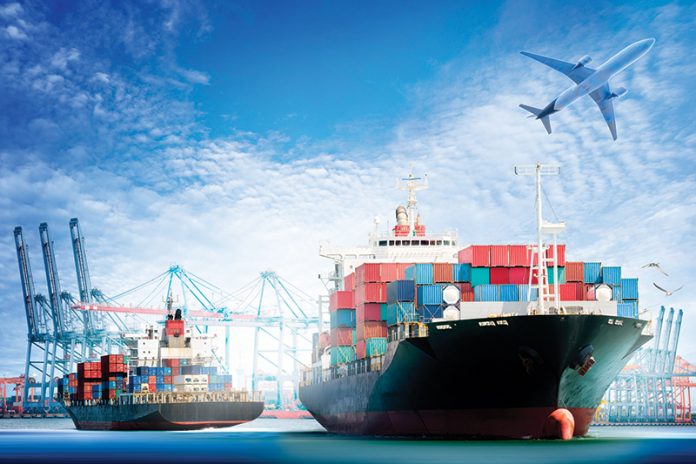ISLAMABAD: After a long period of remaining in papers for reviews and consultations, the federal cabinet on Tuesday has finally approved the country’s five year trade policy framework.
Officials who spoke with Profit said that the Strategic Trade Policy Framework (STPF) 2020-25 aims to enhance the ability and capacity of Pakistani enterprises to produce, distribute and sell products and services as or more efficiently than their competitors.
Under the policy, prepared after studying international demand trends and the capacity and capabilities of different export sectors of the country, various sectors including the traditional sectors like textile and apparel, leather, surgical instruments, sports goods, carpets, rice, cutlery and developmental sectors including engineering goods such as auto parts, pharmaceuticals, marble and minerals, processed food and beverages, footwear, gems and jewelry, chemicals, meat and poultry, fruits and vegetables, sea food and services sector would be focused on for the enhancement of exports.
As per officials of the Ministry of Commerce, the main focus of the new trade policy will be on geographical and product diversification, manufacturing cost reduction through tariff rationalisation, pursuit of regional connectivity especially the look africa policy, enhancement of market access through FTA/PTA, and facilitation of logistics and tracking under the TIR as well as enhancement of regional connectivity for access to Central Asian Republics (CARS), Turkey and Iran to Europe and Russia.
The STPF is dynamic in nature and it will be subject to course correction based on constant monitoring and evaluation.
Furthermore, there shall be an institutionalised mechanism for robust monitoring and implementation of the policy in order to minimise policy implementation gaps, which have traditionally remained a weak link due to multi-organisational roles in the export ecosystem.
In order to oversee the implementation of STPF 2020-25, a cross functional National Export Development Board (NEDB) has already been constituted under the chairmanship of the Prime Minister, composed of senior public sector officials of relevant organizations and private sector representatives. Regular meetings of the NEDB are being held in order to ensure the implementation of various policy measures.
According to sources, the Ministry of Commerce foresees $ 40.27 billion exports by 2025 under the five year trade policy. Exports projections are based on a sound econometric partial equilibrium model. The explanatory variables used in the model include world GDP, Pakistan’s GDP and real effective exchange rate i.e. nominal exchange rate, domestic prices, Pakistan’s export prices and competitor’s exports prices.
Moreover, three scenarios have been constructed to project future exports. The differences between the three scenarios were domestic prices which reflect the competitiveness and cost of doing business in the country.
It is assumed that effective government interventions in terms of STPF, national tariff policy, trade facilitation, energy reforms, technology upgradation, easy financing and other on-going Ease of Doing Business (EoDB) initiatives will have an impact on competitiveness and thereby enhance exports.
Earlier in March, when the trade policy was tabled at ECC of the Cabinet, it had deferred the consideration of the summary and directed the MoC to hold further consultations with relevant stakeholders.
In the last decade, the Commerce Division had notified three STPFs: in 2009-12, 2012-15, and 2015-18; however, none of these were successfully implemented to achieve the desired objectives due to various reasons.
These policies also failed to alter the export paradigm over the period.





Hi
Good information
Kindly visit my website i have thousands of free SVG files and free theme, Plugins
freesvg.uk
sir plz send me information about import of duty free cars for disable persons
sir plz send me information about import of duty free cars for disable persons